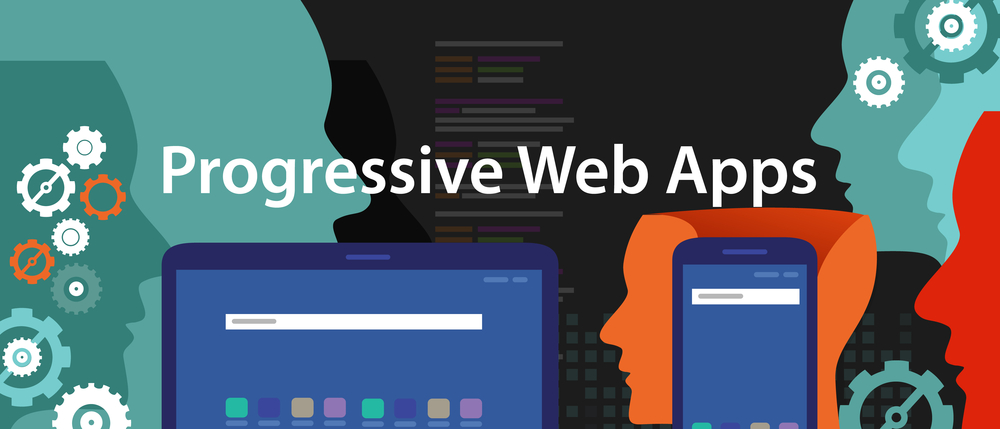Progressive Web Apps: A Perfect Guide to Explore

The greatest discoveries happen when you try amalgamating a few different things into one amazing combination. I’d say no matter how lengthy that list of combinations is peanut butter and jelly definitely comes second on that list. Wondering what comes first?
Answer: (Drumroll) Progressive Web Apps or PWA.
It works on the same principle of exciting combinations only taking the best of the web and the best of the app to provide you the best of both the worlds! Isn’t that a winner?
What is PWA?

In essence, PWA bridges the hiatus between the web and the app. If you are someone working in the IT world, I am sure you know how this term is being thrown around like confetti. The idea has attracted so much discussion and appreciation that you simply ought to know what it is. Technically, it might sound gibberish in the beginning but fret not; what am I if not a simplifier (is that even a word?). The term is used to define a new software development technology. Like a hybrid app development platform, PWA combines features offered by modern browsers with benefits of mobile experience. It starts like a usual webpage but at the same time offers the option of adding the PWA to the Home Screen. Once you do that, it hides the browser UI and works like an app (mutant, is that you?)!
All hail PWA
To cite an instance from the real world (because there is no truth without evidence), Twitter recently launched www.twitter.com as a PWA and they had an amazing experience which goes on to substantiate that the technology is ready to take on the world. And I haven’t even gotten to the best bit yet. PWA works offline too, mitigating the amount of data cached when you use the app.
All of this in just one technology; isn’t it the best time to be alive?
Why PWA is the perfect guide to explore?
Since the advent of mobiles, people try to fit their everyday lives in that small device. So much so, that 2017 witnessed 197 billion mobile app downloads all over the world. That’s huge! And with the oncoming of e-commerce, more and more businesses are venturing into making available their own mobile applications because you can use them on the go. It is the perfect platform to keep customers and consumers engaged and updated about the business.
When you are building an application, you must know the difference between PWA or hybrid app development platforms as opposed to the traditional mobile app. To help you out with that information, I have made a listing of the benefits of PWA.
1. Low Data Usage:

In Nigeria, Konga is a leading e-commerce website. Using a PWA, resulted in 92% less data usage for the users. That is a mammoth reduction to be honest. In countries like Nigeria, or even India, data is pricey compared to the developed nations. PWAs use only a fraction of the data that would be otherwise used by the native app. If the native app uses 5mb, PWA will only use 250kb. By not requiring any significant amount of storage space, PWAs allow for better performance of the mobile phones altogether.
2. Low Costs:

Any startup or a new business that wants to build its own app, if chooses the traditional method, will have to build the same app separately for Android and iOS devices. That will amount to immense expenditure and pose a severe financial crunch for new businesses. PWAs can develop the same app, with same functionalities at one third of the cost of making a traditional app. Sounds like a win-win situation, doesn’t it?
3. Zero Updates Required:
The traditional apps required constant updates, manual or automatic. It also needs a Wi-Fi connection because apps like Facebook require 200mb just for upgradation. It cannot be done using monthly data as 200mb is no small amount. But with PWAs, say goodbye to these hassles. Since PWA is a website, the updated happen just like it does on a website, its just like you refreshed it. It happens quickly as there is no approval needed from the Play Store.
4. Improving The Statistics:
Due to it’s simplicity and convenience, PWAs are becoming very popular. For a lot of businesses that switched to PWAs, their consumer engagement saw a spike in double digits (as percentage, of course). They have helped to increase conversions, time spent on a website per visitor and has boosted the revenue.
5. SEO Friendly:
PWAs can enhance the accessibility and searchability of your app. They load fast and therefore garner a higher search engine ranking. Along with a wonderful user experience, it all makes your SEO strategy extremely successful.
PWAs are the next big thing. With the success stories of some of the big names such Chrome, Firefox, Twitter, PWAs are taking over the market. It is time for you too (if you haven’t already) to switch to a better platform so as to secure the future of all that you have built with your company.


